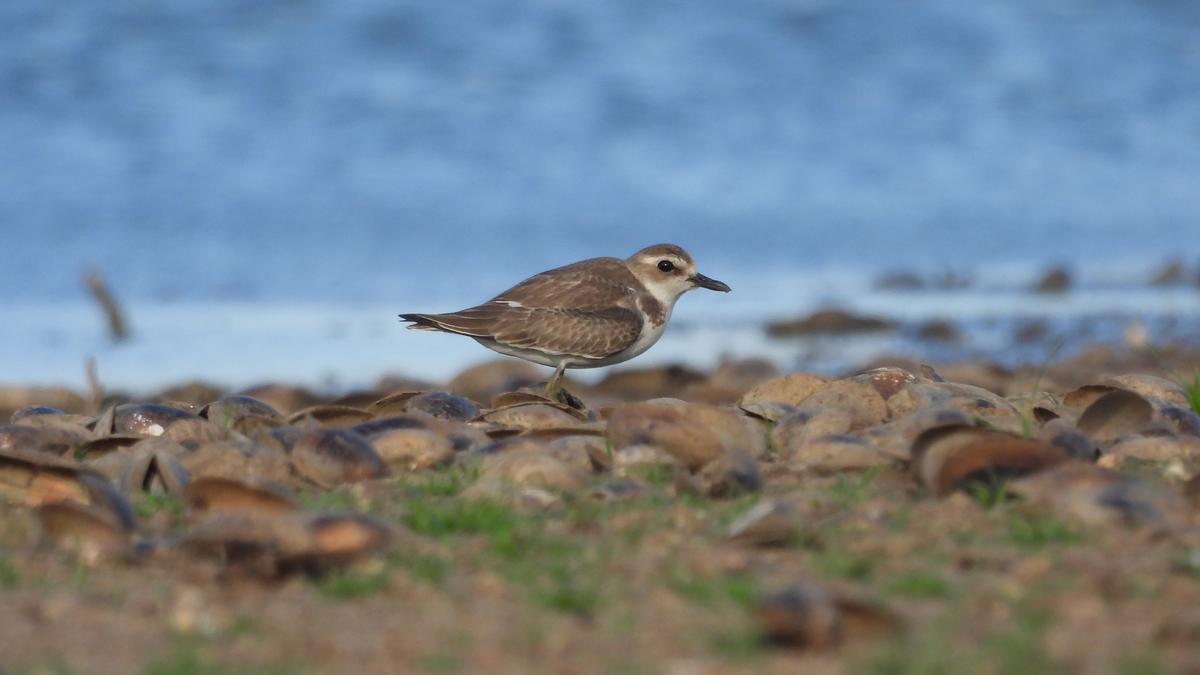
Coimbatore’s Kurichi tank turns home to long distance migrant bird Greater sand-plover
The Hindu
Migrant bird, Greater sand-plover, spotted in Coimbatore's Kurichi tank. Birders from Coimbatore Nature Society (CNS) identified the species among a group of Lesser sand-plovers. CNS president Selvaraj P.R. said it's likely the first record of the species in Coimbatore. Water levels in tanks have decreased, offering shores & shallow water areas for waders & plovers. Red-necked phalarope also sighted in Kurichi tank, likely making a stopover during migration.
Greater sand-plover (Charadrius leschenaultii), a long distance migrant bird that normally prefers sea shores, has been spotted in an urban tank in Coimbatore.
The bird was sighted when birders from the Coimbatore Nature Society (CNS) led by its president Selvaraj P.R. visited Kurichi tank on September 24. CNS member Naveen Kumar S. identified the rare visitor that was among a group of commonly seen Lesser sand-plovers. He photographed the bird and senior members of CNS confirmed the species later.
“Greater sand-plovers are known for long distance migration. The sighting at Kurichi tank could possibly be the first record of the species in Coimbatore,” Mr. Selvaraj said.
According to Mr. Prakash, Greater sand-plover winters in coastal mudflats and estuaries during the non-breeding season or the migration season.
It breeds during April to May in central Asia, late March to late May in Turkey and upto late June in Armenia. It winters in the shores of Indian and Australian Oceans after the breeding. The bird’s diet consists of beetles, worms, crustaceans, molluscs, other insects and their larvae.
Mr. Prakash said water bodies in Coimbatore, including Kurichi tank, are likely to witness more rare birds during the ongoing migration season as water levels have receded, offering shores and shallow water areas for waders and plovers.
“Water levels in tanks in the city have decreased considerably for the first time since 2017, owing to poor rains. Birders like us are expecting more unusual visitors till February,” he said.













